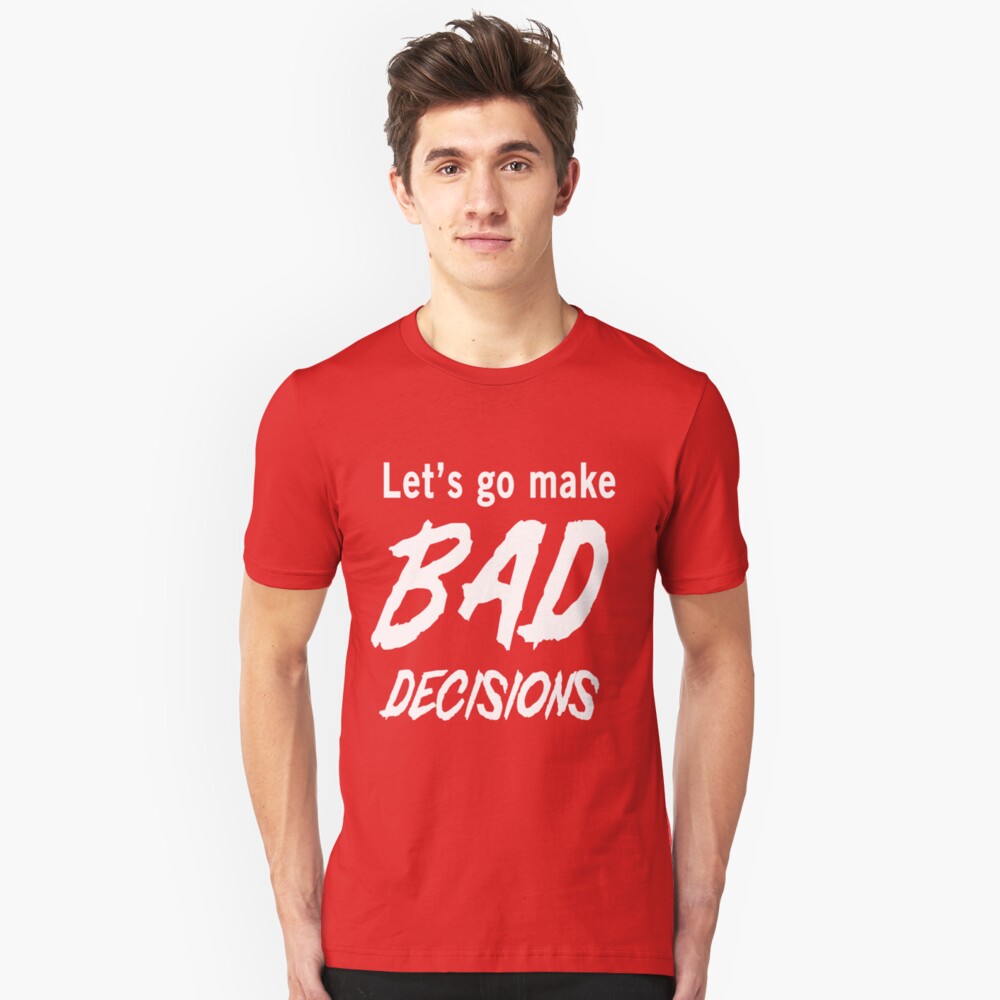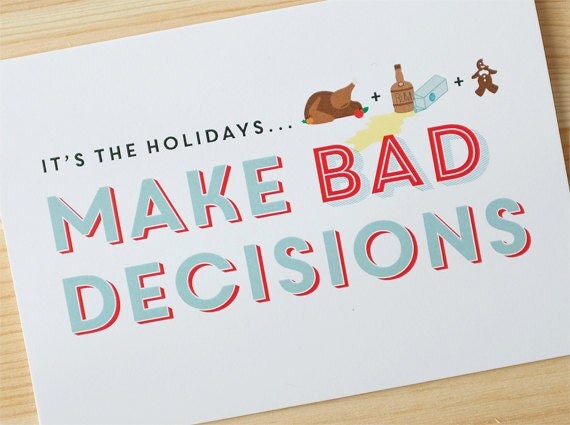
What it is: Overconfidence bias is the tendency to see ourselves as better than we are. Make a mental effort to adopt some risk by considering assets that typically perform well, such as an index fund that follows the S&P 500. Create an investing strategy and stick to it.
#Made a bad decision how to#
How to overcome it: Don't leave it up to emotion. "Someone with a long time horizon shouldn't have exposure to low-risk, low-reward instruments like money market funds, yet many investors do because they fear the volatility of the stock market." "The surest way to build wealth over long time horizons is to invest in a diversified portfolio of common stocks," says Johnson. It's why people save rather than invest, even though inflation will erode the value of their savings - and many investments, when held for long enough, pay off. Why it's a problem: Loss aversion causes us to avoid small risks even when they're probably worth it. Loss aversion helps explain why: Losses hurt more than gains are savored. "The biggest financial mistake people make is taking too little risk, not too much risk," he says. Johnson, professor of finance at Creighton University's Heider College of Business argues that loss aversion can cost us money. What it is: Loss aversion is a bias toward avoiding losses over seeking gains.

And create a plan for how to spend windfall gains, like an inheritance or work bonus, ahead of time. How to overcome it: Create a budget to guide your financial decisions and better determine when to save versus spend money. If they'd chosen to pay off their credit cards instead, they could use the money that would have otherwise gone to interest to instead rebuild their child's college fund - or even use it to invest and build long-term wealth. The money is already "accounted" for, which means they'd get stuck paying high interest on their credit card bills for carrying a balance each month.

For example, someone might choose to keep money in their college fund instead of paying off credit card debt.

Why it's a problem: Mental accounting can sometimes hurt your bottom line. Earned money has been mentally allocated to an account, but the $100 you find on the street hasn't been. That's why most people are more inclined to spend windfall gains on luxury items but would save that same money if they'd earned it.


 0 kommentar(er)
0 kommentar(er)
